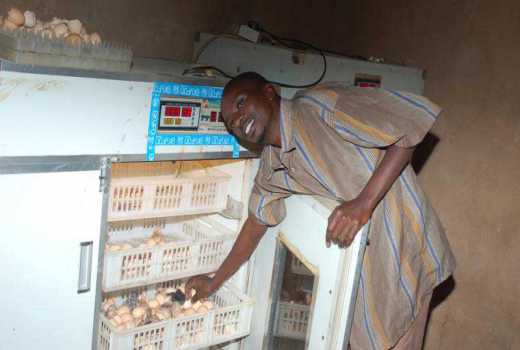×
The Standard e-Paper
Kenya’s Boldest Voice

Poultry farming is one of the ventures many young people have embraced in Meru County, because of the quick returns. But one daring farmer has decided not only to keep ordinary poultry, but ornamental ones that fetch higher profits.
Edward Mugambi, keeps several ornamental birds at his farm in Kirogine in Imenti North Sub County. He specifically keeps Silk Bantam and Polish Bantam which he started rearing in 2013.